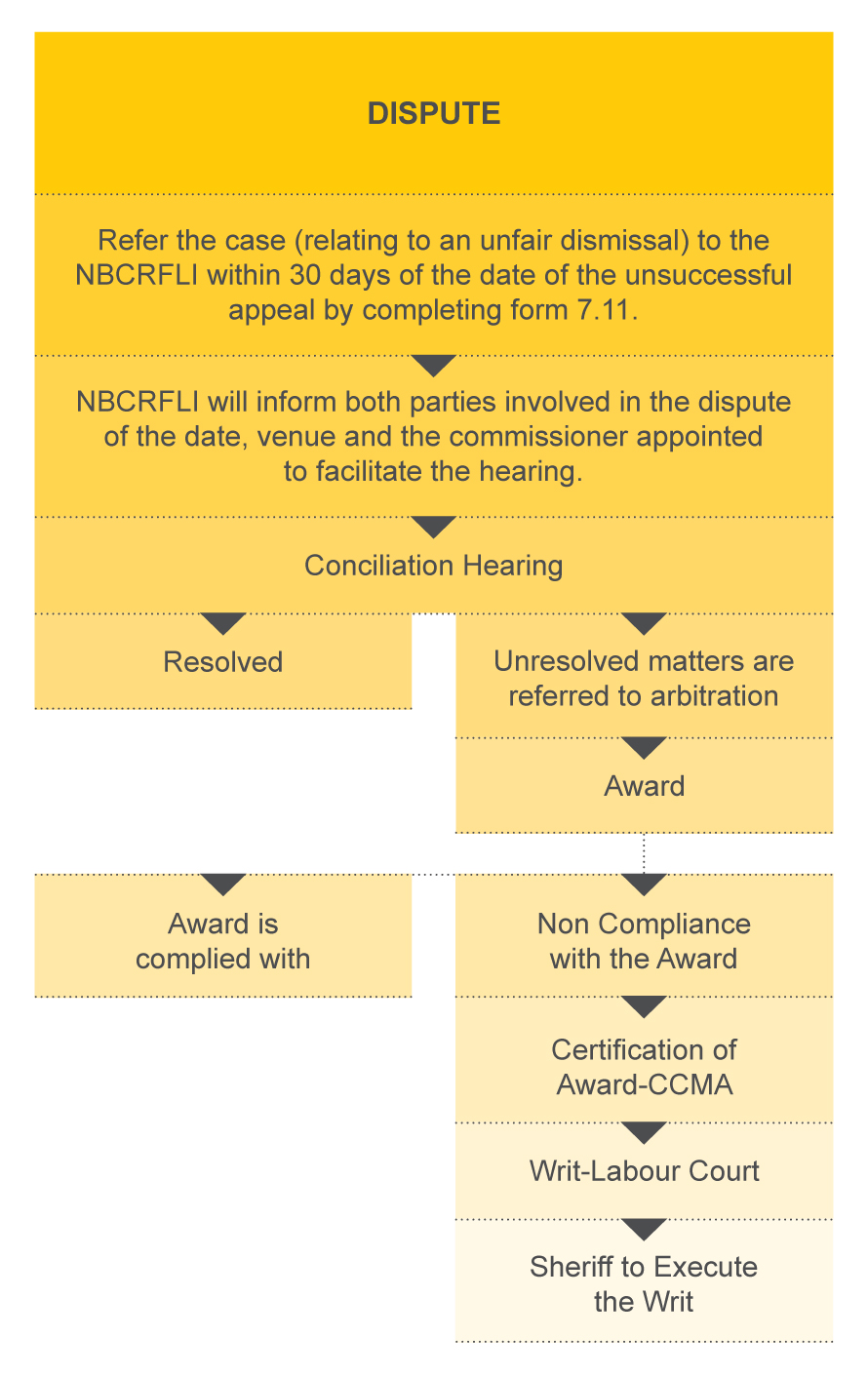
The following changes were made to the Disputes Resolutions Rules in February 2015:
- Email as a proof of service (refer to Clause 8)
- Notification of conciliation or arbitration hearing via sms (refer to Clause 7)
- What notice must the Council give of a conciliation (refer to Clause 13)
- Witnesses during any subsequent proceedings in the Council or in any court (refer to Clause 18)
- Conduct of Con-Arb in terms of Section 191 (5A) (refer to Clause 19)
- How to request arbitration (refer to Clause 20)
- When must the parties file statements (refer to Clause 21)
- When must the Council notify parties of an arbitration (refer to Clause 23)
- Who can represent you to conciliations/arbitrations and con-arbs (refer to Clause 27)
- The length of time to bring an application (refer to Clause 33.2)
- How to apply to refer a dismissal dispute to the Labour Court (refer to Clause 35)
- How to request a pre-dismissal arbitration in terms of section 188A (refer to Clause 36)
- Condonation for failure to comply with the rules (refer to Clause 37)
- Expert witnesses (refer to Clause 39A)
- Order of costs in an arbitration (refer to Clause 42)
To view a full set of the new rules, click on the Disputes Resolution rules at the bottom of this page.
Resolving disputes
As a member of the road freight and logistics industry, you have the right to make sure that your section 51 (Labour Relations Act of 1995) dispute, for example, unfair labour practice or unfair dismissal dispute is heard and resolved.
It is important to note that there are no additional costs to be paid for if you decide to use the Council’s dispute resolution services. The costs are covered by your monthly Council levy deducted by your employer and equally paid together with your employer’s portion directly to the NBCRFLI.
What is a dispute?
A dispute, under section 51 of the Labour Relations Act of 1995, is any matter over which employer and employee members legally challenge each other, such as unfair dismissals or unfair labour practices or a dispute about the application of the provisions of Council’s Collective Agreements.
It is important to note that the Council checks the following things before an unfair dismissal or unfair labour practice dispute is set down:
- Is the correct citation of the party (legal name of the company, legal names of individuals) provided?
- Are the terms of reference correctly cited?
- Did the applicant sign the form?
- Have the correct timeframes been adhered to?
If not, condonation applies. (If the applicant failed to comply with the timeframes provided for in the Act, he/she may apply for condonation for the late referral)
How do I lodge a dispute?
- Complete the referral form (7.11). The form is available from any NBCRFLI office and on the NBCRFLI website.
- Send a copy of the referral form to your employer by registered mail, serve the form in person by handing a copy to the employer or fax it to the correct fax number of your employer or emailing it to the correct email address of your employer.
- Send the original form to the relevant NBCRFLI office with proof that the form was sent or given to your employer. The form can be emailed, faxed, posted or hand delivered to the NBCRFLI. Acceptable proof that your employer received a copy of the referral form includes:
- a signature of receipt
- a fax receipt slip
- an email receipt slip
- a registered letter slip
- At the NBCRFLI offices, the case management officer will give you a case number and inform you in due course of the date and time of the hearing.
- You will also receive an SMS two days before the date of the hearing as a reminder.
Please note that the case management officer will assist you in filling out your dispute forms, if you need help.
Who may represent an Employee or Employer at the Council?
An employee may appear in person at any proceedings before the Council or be represented by a member; official or office bearer of a registered trade union that the employee was a member of at the time the dispute arose.
An employer may be represented by a director, trustee or partner in a partnership of that employer. Legal representation is not automatically allowed and may be subject to the commissioner’s discretion.
What are the time periods in which to refer a dispute?
-
Unfair dismissal dispute: Must be referred within 30 days of the date of dismissal. (If an employee applied for an appeal, the date of dismissal is the day the employee was notified of the outcome of the appeal hearing.)
-
Unfair labour practice dispute: Must be referred within 90 days of the date of the act or omission, which resulted in the unfair labour practice or, if it is a later date, within 90 days of the date on which the employee became aware of the act or occurrence.
Apply for condonation if the referral is late
If more than 30 days have passed since the dismissal took place without referring the matter for conciliation, you will have to apply for condonation, which is like an extension of the deadline. Condonation forms are also obtainable at NBCRFLI offices.
Referral to arbitration: An application for arbitration must be submitted within 90 days after the conciliation certificate had been issued.
Types of disputes you can refer to the NBCRFLI
- Disputes about the interpretation or application of the provisions of Chapter II (Section 9)
- Disputes regarding a proposed strike or lock out (Section 64(1))
- Disputes in essential services (Section 74)
- Disputes about unfair dismissals (Section 191)
- Disputes about severance pay (Section 196)
- Disputes about unfair labour practices (Item 2 in Schedule 7)

